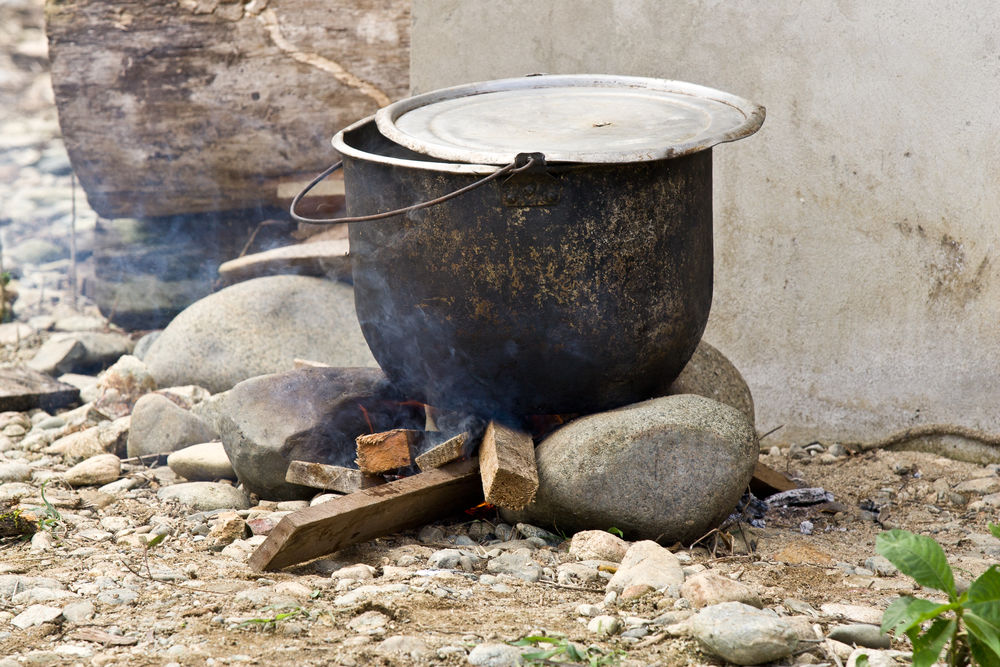Do you remember the childhood story StonernSoup?
It’s an old folk tale about a couple of hungryrntravelers who creatively entice hesitant villagers to fill their large cookingrnpot with delicious soup ingredients.
After the initial refusal of the villagers to feed thernhungry travelers, the two men fill their pot with stream water, light a firernunder it, and then add a large stone to the water.
A curious villager asks what the men are doing. Therntravelers tell her they are cooking delicious stone soup, and that they wouldrnbe happy to share it, except that it has not reached its full potentialrnyet. They explain to each inquiringrnvillager that with just a few spices and some vegetables the soup will bernready.
So, desiring to enjoy the delicious stone soup, one byrnone each villager is happy to give up a vegetable and a smidgen of spice.
After cooking is complete, the stone is removed, andrnall of the gathered villagers, along with the travelers, enjoy together arnwonderful helping of stone soup.
This delightful moral tale teaches that when we sharernwhat we have with those who have little or nothing, there is indeed enough goodrnfood, and other basic necessities, to go around for everyone. And that the actrnof sharing has the potential to bring us together as a village and even as arnglobal community.
But in the village of Riimenze, in South Sudan, stonernsoup is not a charming moral tale, it is a tragic reality!
In a very sad and compelling video posted at SudanrnRelief Fund’s website, Catholic Bishop Eduardo Hiiboro Kussala of the Diocesernof Tombura-Yambio in South Sudan, explains that with civil war violence showingrnno end in sight, his greatest challenge is to somehow supply food and cleanrnwater to several thousand internally displaced persons who have very little,rnand in many cases, absolutely nothing.
He says, “Many children are sick, and barely havernanything, sometimes nothing to eat. In an attempt to appease their children,rnsome mothers will collect stones and put them into a pot of boiling water, inrnhopes that their children will be convinced that it is food that is beingrncooked.”
Please watch Bishop Kussala’s video message, and then kindly consider making a donation.
Recently I interviewedrnFather Daniele Moschetti, who for six years was provincial superior of thernComboni Missionaries of the Heart of Jesus in South Sudan. He said the civilrnwar there is especially bloody in regions where oil wells are exploited byrncorporations from nations including the U.S., Canada, China and Malaysia.
And he lamented that inrnjust 2014 alone the South Sudanese army spent $1 billion on weapons from thernU.S. and other weapon exporting countries, while millions starve.
Fr. Moschetti also explained that large amounts ofrnmoney from the U.S. and other donor nations, has been stolen by numerousrngovernment and rebel leaders. Therefore, he asked that we contact our nationalrnrepresentatives (U.S. Capitol switchboard: 202-224-3121) and urge them torninsure that all funds appropriated for emergency and development aid to SouthrnSudan be more closely monitored to guarantee their intended use to improve thernlives of desperately poor and war-torn South Sudanese.
South Sudan is an all too familiar example ofrnthe horror unleashed when humans worship the gods of money and power instead ofrnthe God of peace, social justice and love.
Tony Magliano is an internationally syndicatedrnsocial justice and peace columnist. He is available to speak at diocesan orrnparish gatherings. Tony can be reached at [email protected].

